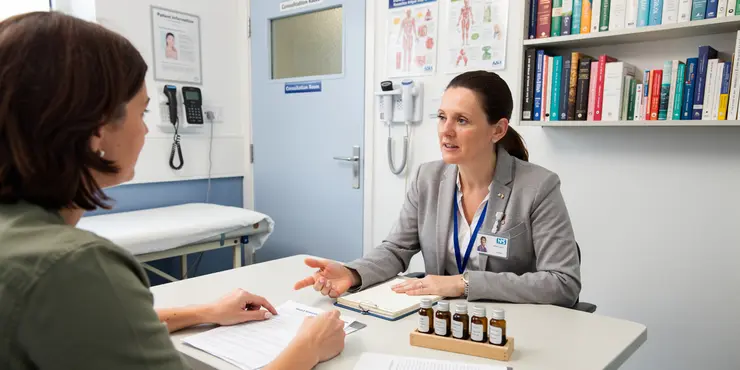
Find Help
More Items From Ergsy search
-
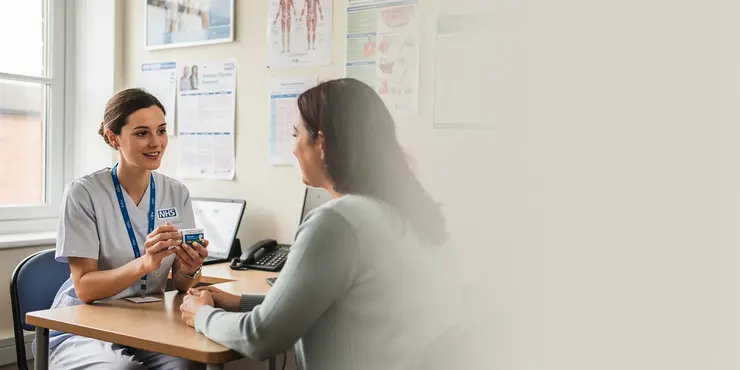
Are homeopathic medicines safe?
Relevance: 100%
-
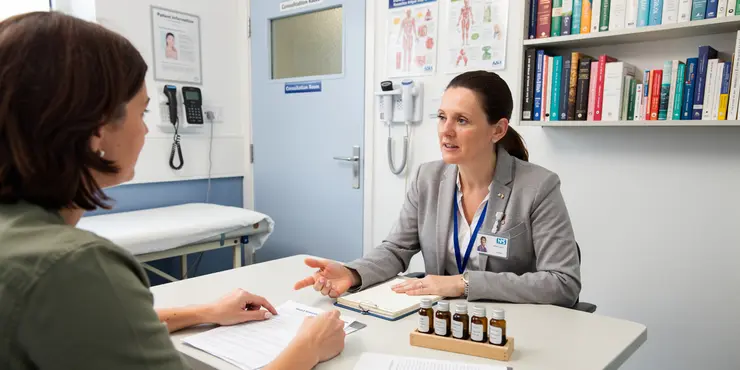
What is Homeopathy and Homeopathic Medecine?
Relevance: 97%
-
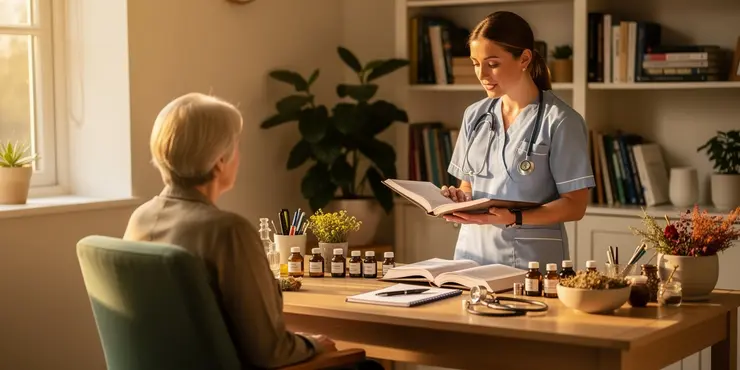
How are homeopathic medicines made?
Relevance: 93%
-
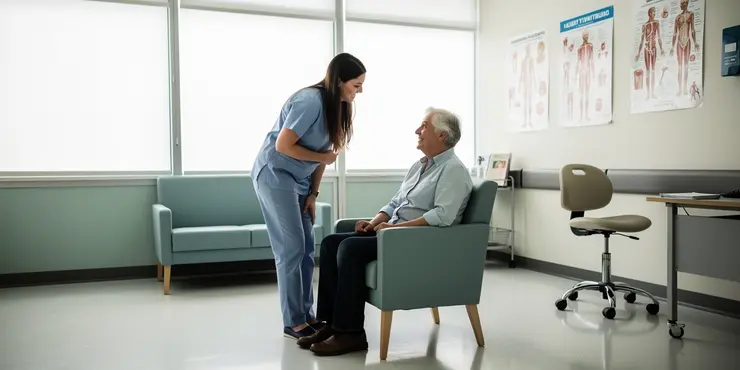
Do homeopathic medicines contain any active ingredients?
Relevance: 90%
-
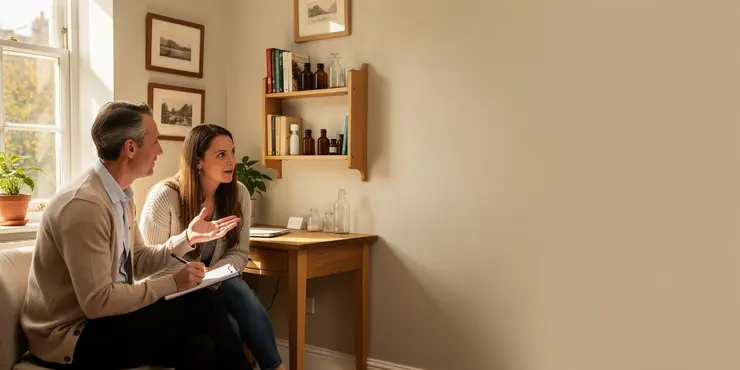
How does homeopathy differ from conventional medicine?
Relevance: 84%
-
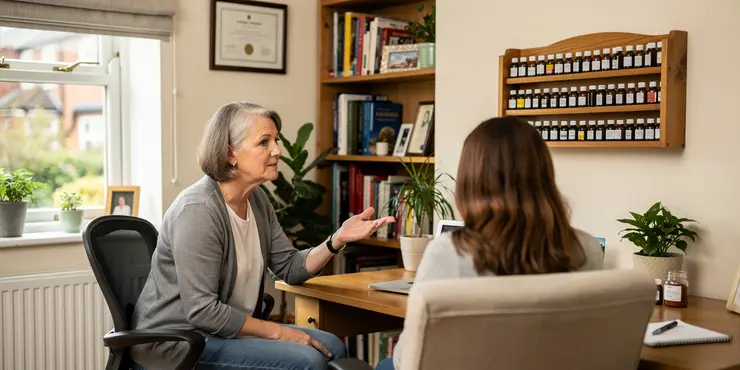
Is homeopathy widely used in the UK?
Relevance: 75%
-
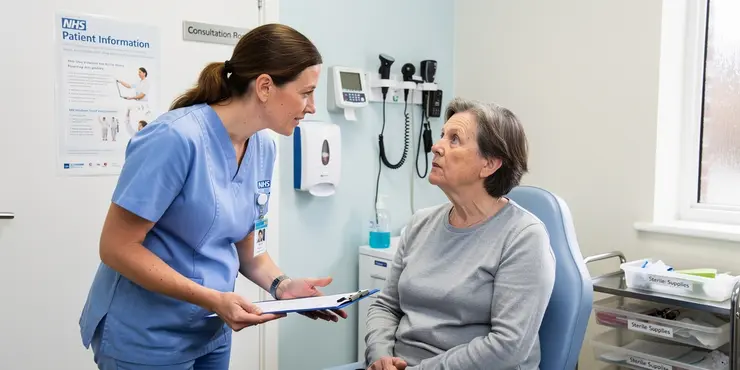
Who founded homeopathy?
Relevance: 75%
-

Can homeopathy treat all medical conditions?
Relevance: 72%
-

Are homeopathic treatments covered by the NHS?
Relevance: 71%
-
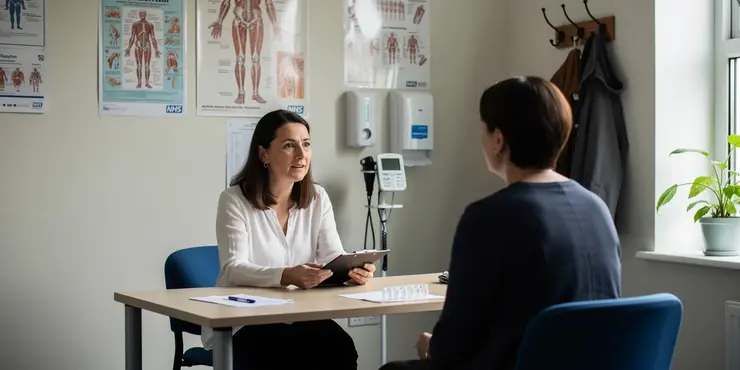
How can I find a qualified homeopath in the UK?
Relevance: 68%
-
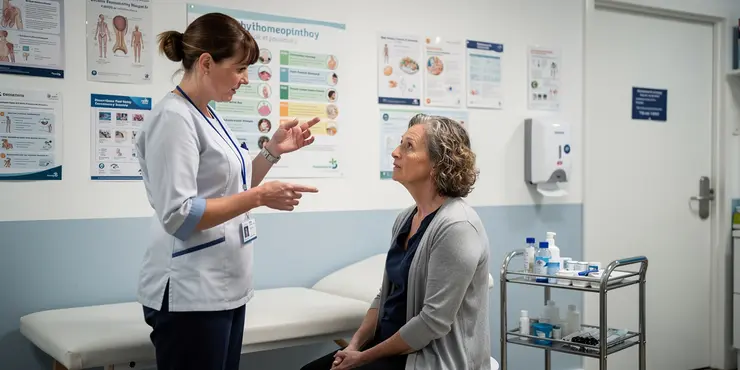
What are some common conditions treated with homeopathy?
Relevance: 68%
-
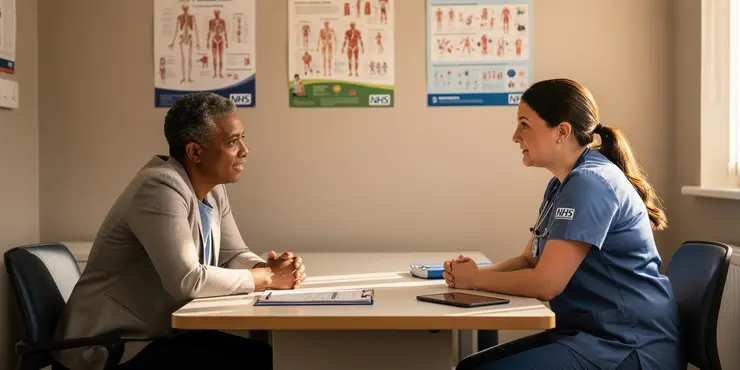
Is it necessary to stop conventional treatment when starting homeopathy?
Relevance: 67%
-
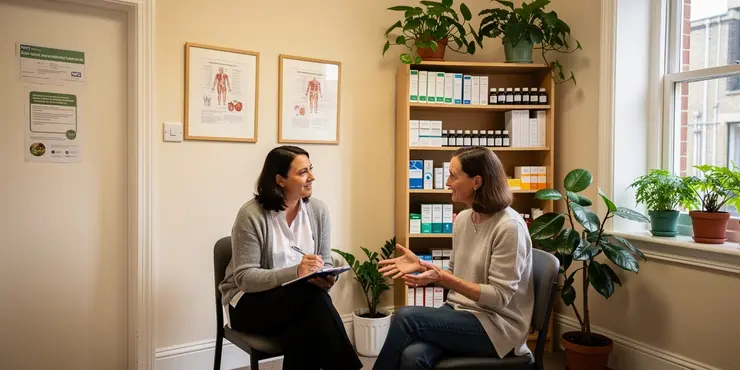
Who can prescribe homeopathic remedies?
Relevance: 66%
-
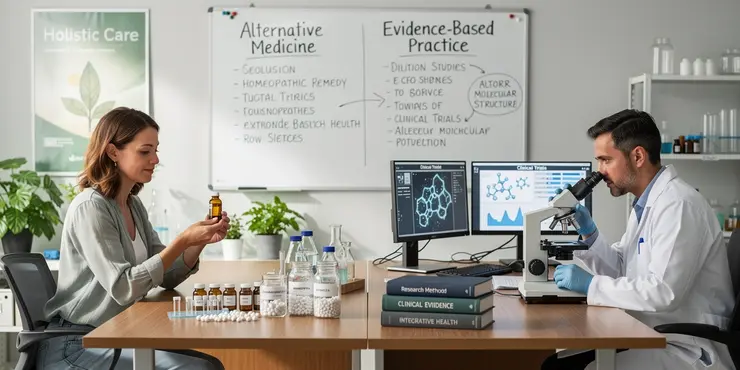
Are there any scientific studies supporting homeopathy?
Relevance: 65%
-

What is the principle of 'like cures like'?
Relevance: 46%
-
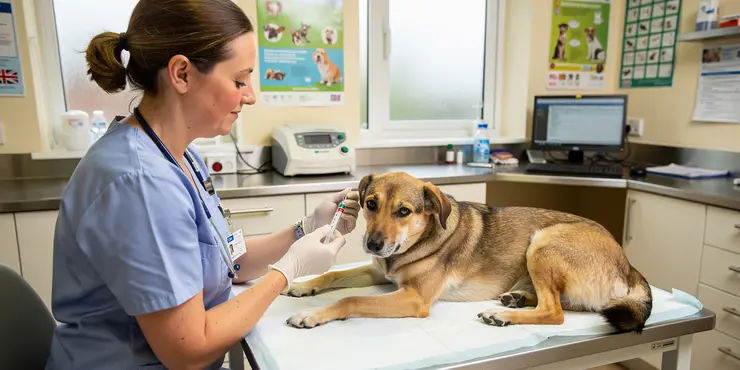
How is ketamine used in veterinary medicine?
Relevance: 28%
-
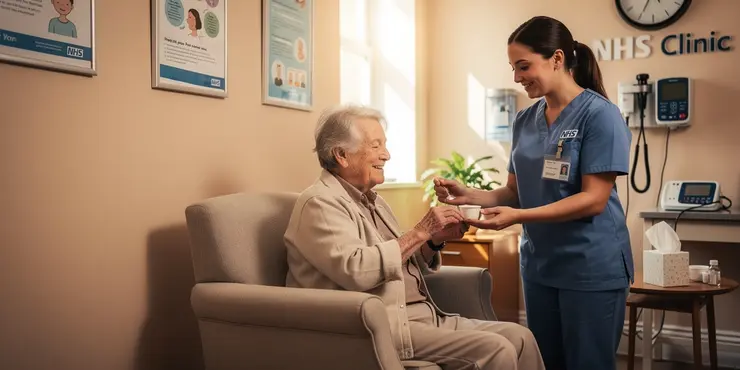
Medicines of the heart
Relevance: 28%
-
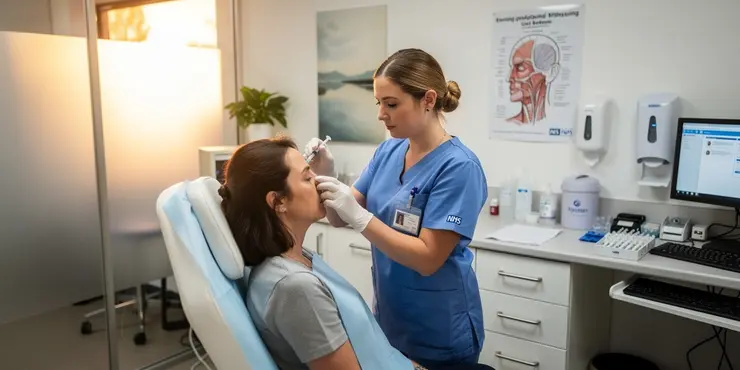
How long has Botox been used in medicine?
Relevance: 26%
-

What are generic medecines?
Relevance: 15%
-
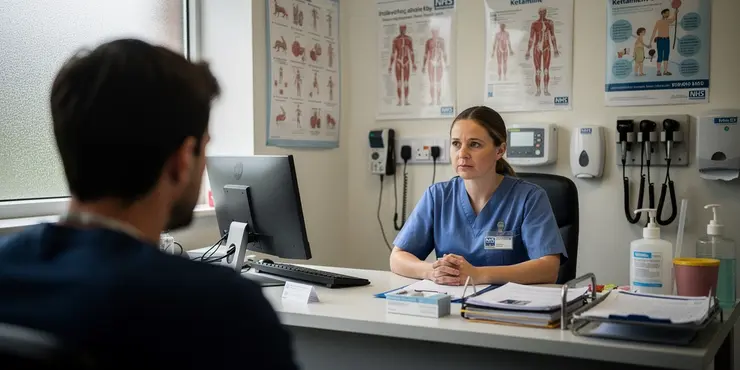
Are there any legal uses for ketamine?
Relevance: 10%
-

Is Ketamine a Class B drug?
Relevance: 9%
-
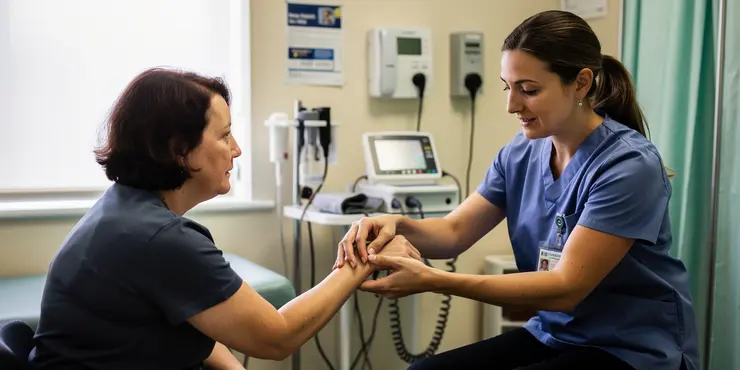
Are there any alternative treatments for Carpal Tunnel Syndrome?
Relevance: 9%
-
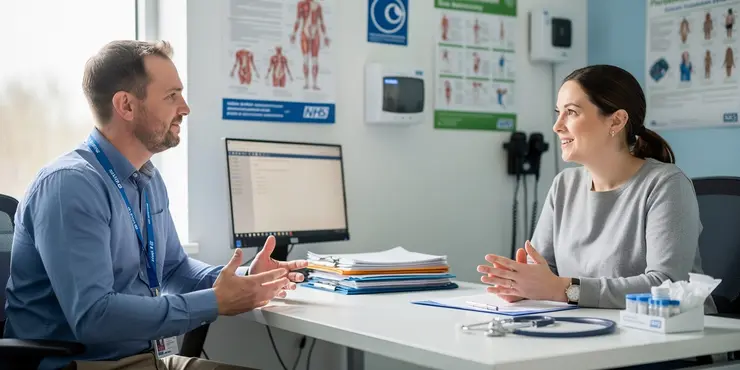
Are marijuana-related offences still considered drug crimes?
Relevance: 9%
-

Dealing with Common Childhood Illnesses
Relevance: 8%
-
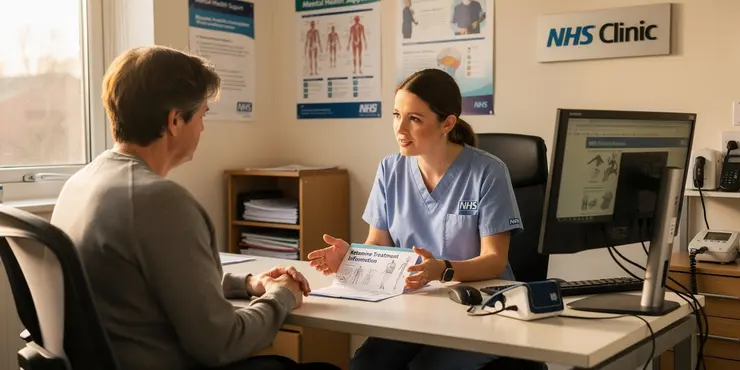
What is the classification of ketamine?
Relevance: 8%
-
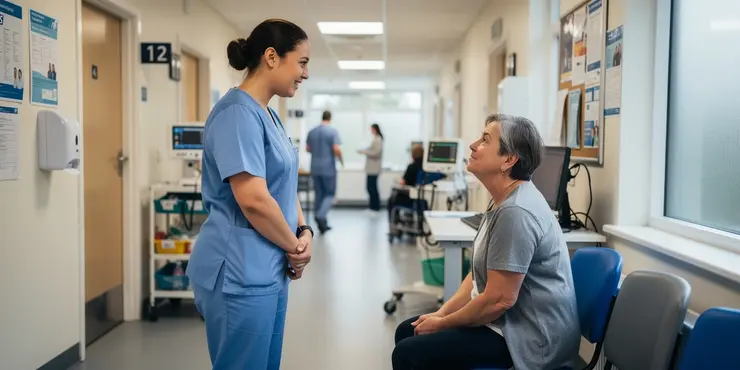
What is drug manufacturing?
Relevance: 8%
-

Can I get Botulism from Botox Treatments?
Relevance: 7%
-
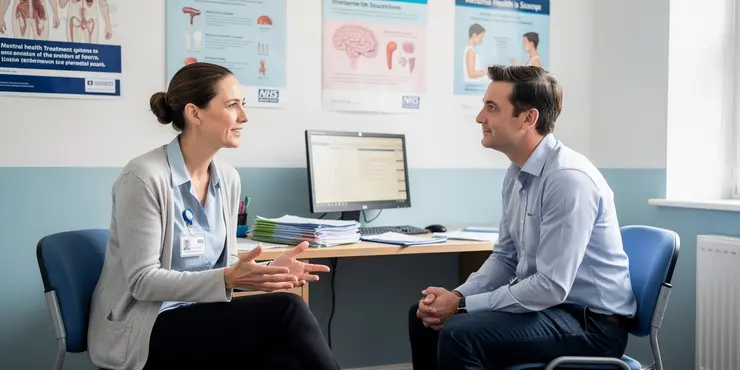
How does ketamine work?
Relevance: 7%
-
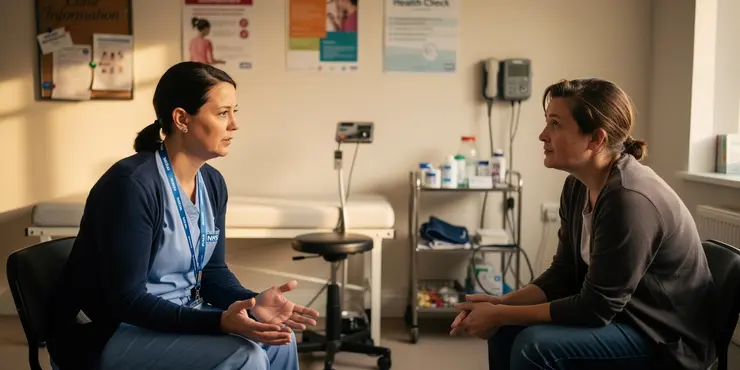
Is ketamine a controlled substance?
Relevance: 7%
-

What are the uses of cannabis extract?
Relevance: 7%
-
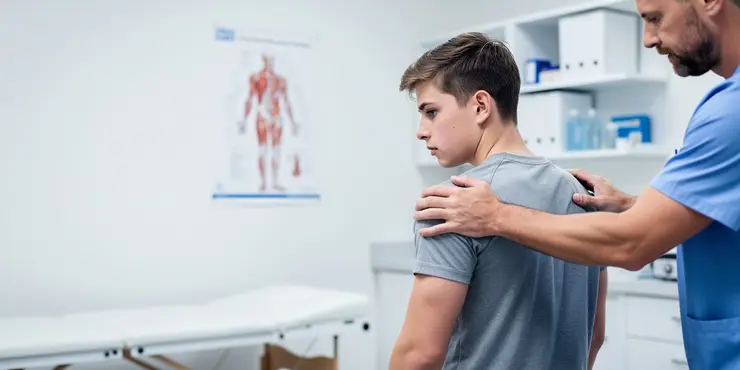
Can chiropractors help with sports injuries?
Relevance: 7%
-
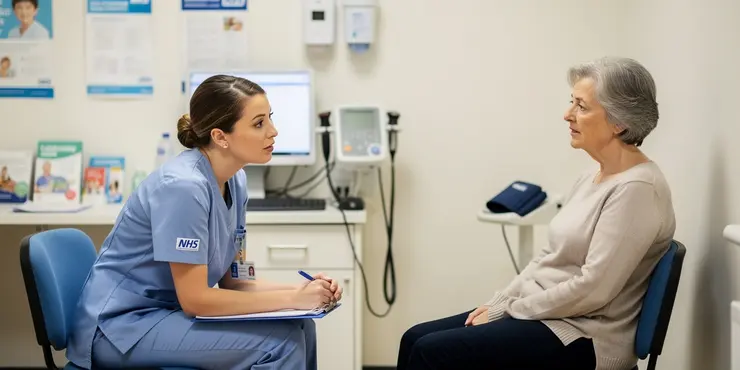
Bowel Cancer
Relevance: 7%
-
How is cannabis oil different from other extracts?
Relevance: 7%
-

Having an anaesthetic for your operation - for over 8s
Relevance: 6%
-

Is cannabis extract legal?
Relevance: 6%
-
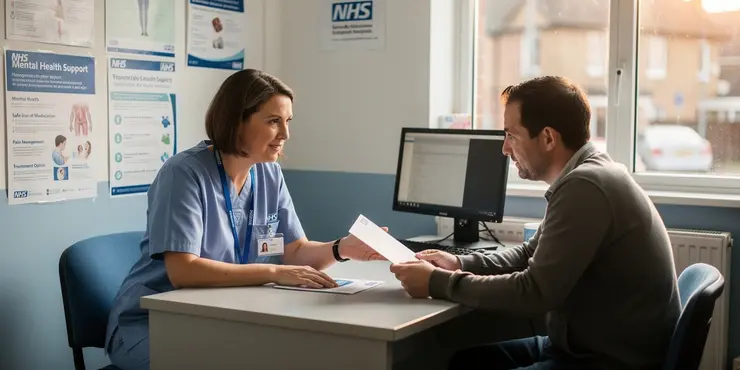
Does the classification of ketamine differ between countries?
Relevance: 6%
-
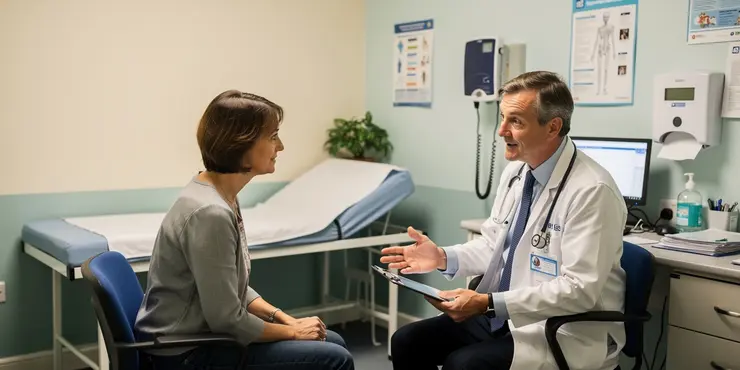
Who developed the Paillon treatment?
Relevance: 6%
-

History of Islam in Brief | 5 Minutes
Relevance: 6%
-
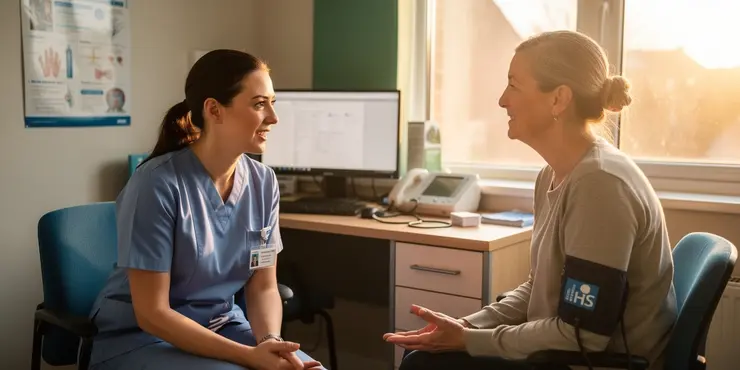
Is a prescription required for Paillon treatment?
Relevance: 6%
-
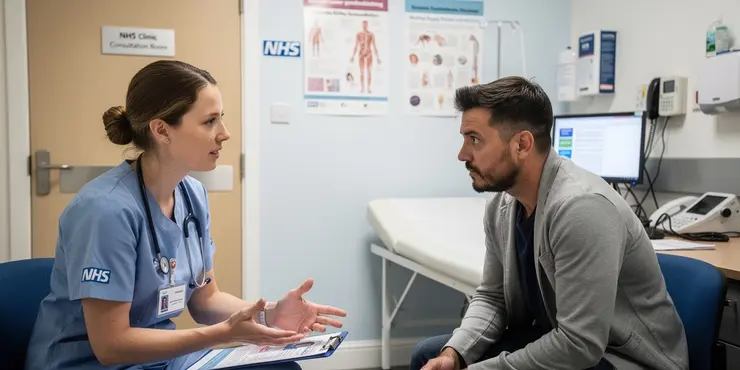
What are the medical uses of ketamine?
Relevance: 6%
Understanding Homeopathy and Homeopathic Medicine
Homeopathy is a system of alternative medicine that originated in the late 18th century, developed by Samuel Hahnemann in Germany. It is based on two main principles: the law of similars and the law of infinitesimals. The law of similars suggests that a substance that causes symptoms in a healthy person can be used to treat similar symptoms in a sick person. The law of infinitesimals involves diluting the active ingredient repeatedly, often until no molecules of the original substance remain. Despite this, proponents believe that the essence or energy of the substance retains therapeutic effects.
How Homeopathic Medicines Are Made
Homeopathic medicines, also known as remedies, are made through a process called potentization. This involves serially diluting the substance in alcohol or distilled water, and shaking it vigorously in a process called succussion. Remedies are usually diluted to a point where no molecules of the original substance remain, leading to some criticism from the scientific community. However, homeopaths assert that these remedies contain the energetic imprint of the original substance, which can stimulate the body’s healing processes.
The Use of Homeopathy in the United Kingdom
In the United Kingdom, homeopathy is practiced both privately and, in some cases, within the National Health Service (NHS). Some pharmacies stock homeopathic remedies, and they are sold without prescription. Although there is debate around the efficacy of these treatments, many individuals in the UK choose homeopathy as a complementary or alternative approach to traditional medicine. Homeopathy in the UK is subject to regulations to ensure the safety and quality of products on the market, although the extent of NHS funding and support has varied over time.
Scientific Evidence and Public Debate
The scientific community remains divided on the efficacy of homeopathy, with critics citing a lack of empirical evidence supporting its effectiveness beyond a placebo effect. Research and reviews by scientific bodies, including the National Institute for Health and Care Excellence (NICE), have often concluded that homeopathy lacks sufficient evidence to recommend its use in medical practice. Nonetheless, supporters argue for its benefits, citing anecdotal success stories and a history of usage. The debate around homeopathy often highlights broader discussions on the role of alternative medicine in healthcare.
Understanding Homeopathy and Homeopathic Medicine
Homeopathy is a kind of alternative medicine. It started over 200 years ago in Germany. A man named Samuel Hahnemann created it. Homeopathy uses two main ideas: "like treats like" and "less is more". "Like treats like" means a tiny amount of something that causes symptoms in a healthy person can help a sick person with the same symptoms. "Less is more" means diluting or watering down the substance a lot. Often, there is none of the original substance left. But people who like homeopathy believe it still works.
How Homeopathic Medicines Are Made
Homeopathic medicines are also called remedies. They are made by a special process called potentization. This means diluting the substance in alcohol or water and then shaking it hard. It is diluted so much that no part of the original substance is left. Some scientists don’t agree with this. But homeopaths say the remedies still help the body heal because they contain the 'energy' of the original substance.
The Use of Homeopathy in the United Kingdom
In the UK, people can use homeopathy privately or through the NHS in some cases. Some pharmacies have homeopathic remedies, and you can buy them without a doctor's note. People talk a lot about whether these treatments work, but lots of people in the UK still use homeopathy. The UK has rules to make sure these remedies are safe to use. The NHS sometimes pays for homeopathy, but this keeps changing.
Scientific Evidence and Public Debate
Scientists don’t all agree on whether homeopathy works. Some say there isn't enough proof that it helps more than a placebo, which is a fake treatment. NICE, a group that looks at medicine in the UK, often says there’s not enough proof to use homeopathy like regular medicine. But people who like homeopathy tell stories of how it helped them or others. This talk about homeopathy makes people think about how they feel about alternative medicine as a whole.
Frequently Asked Questions
What is homeopathy?
Homeopathy is a system of alternative medicine based on the principle of treating like with like. It involves using highly diluted substances to trigger the body's natural healing processes.
Who founded homeopathy?
Homeopathy was founded by Samuel Hahnemann, a German physician, in the late 18th century.
Is homeopathy widely used in the UK?
Homeopathy is popular in the UK, with many people using it as a complementary or alternative approach to conventional medicine.
How are homeopathic medicines made?
Homeopathic medicines are made through a process of serial dilution and succussion (vigorous shaking) of a substance, which is believed to transfer the healing essence.
Are homeopathic medicines safe?
Homeopathic medicines are considered safe as they are highly diluted. However, it is essential to consult a healthcare professional before starting any new treatment.
Do homeopathic medicines contain any active ingredients?
Due to the extreme dilution, homeopathic medicines often contain little to no molecules of the original substance, relying on the concept of 'memory of water' for their effect.
Can homeopathy treat all medical conditions?
Homeopathy is used for a variety of conditions, but its effectiveness is debated. It is not recommended for severe or life-threatening conditions without conventional medical support.
How does homeopathy differ from conventional medicine?
Homeopathy focuses on stimulating the body's healing processes through highly diluted substances, whereas conventional medicine often relies on drugs that target specific symptoms or diseases.
Is it necessary to stop conventional treatment when starting homeopathy?
No, homeopathy can be used alongside conventional treatments. It is crucial to inform your healthcare provider of all treatments you are using.
Are homeopathic treatments covered by the NHS?
The availability of homeopathic treatments on the NHS is very limited, with funding decisions made by local NHS authorities. Some private health insurance policies may cover homeopathy.
Who can prescribe homeopathic remedies?
In the UK, homeopathic remedies can be purchased over-the-counter, but it is advisable to consult with a qualified homeopath or healthcare provider for appropriate recommendations.
Are there any scientific studies supporting homeopathy?
Scientific evidence for homeopathy is mixed. Some studies show positive effects, while others find no significant difference compared to placebo. The debate on its efficacy continues in the scientific community.
What are some common conditions treated with homeopathy?
Common conditions include allergies, colds, stress, arthritis, and skin conditions, although effectiveness may vary.
What is the principle of 'like cures like'?
The principle of 'like cures like' suggests that a substance causing symptoms in a healthy person can, when highly diluted, treat similar symptoms in a sick person.
How can I find a qualified homeopath in the UK?
You can find a qualified homeopath through directories such as the Society of Homeopaths, which has a register of accredited practitioners.
What is homeopathy?
Homeopathy is a way to help people feel better using very tiny amounts of natural things, like plants and minerals. Some people believe it helps get better from being sick.
Here are some tools you can use to understand better:
- Pictures or videos about homeopathy
- Talk to someone who knows about homeopathy
Homeopathy is a way to help people feel better. It uses things from nature to help the body heal itself. The idea is to use very tiny amounts of something that might make you feel sick to help you get better.
Who started homeopathy?
Homeopathy is a special way to help people feel better. It uses tiny amounts of natural things.
The person who first started homeopathy was a doctor named Samuel Hahnemann. He was from Germany.
If you want to learn more, here are some tips:
- Ask a teacher or family member to help you read more about homeopathy.
- Look for videos or pictures about Samuel Hahnemann to make it easier to understand.
- Use apps that read out loud to help you with reading.
Homeopathy started a long time ago. A doctor from Germany, named Samuel Hahnemann, began it in the late 1700s.
Do a lot of people use homeopathy in the UK?
Some people in the UK use homeopathy. It is a kind of medicine. People take homeopathy to feel better when they are sick.
But not everyone uses it. Some people use other medicines instead. You can talk to a doctor if you want to know more about homeopathy.
Homeopathy is a common choice in the UK. Many people use it along with the usual medicine from doctors. It can be a different way to help you feel better.
How are homeopathic medicines made?
Homeopathic medicines are made from plants, animals, and minerals. They are mixed with water or alcohol. They are used in very small amounts.
Tools that help:
- Pictures and videos can help you understand.
- A friend or helper can read with you.
Homeopathic medicines are made by mixing a small amount of something with a lot of water, shaking it really well, and doing this many times. This is thought to move the healing power into the water.
Is it safe to use homeopathic medicine?
Homeopathic medicine uses very small amounts of natural ingredients to help you feel better. These ingredients are often found in plants and minerals.
Here are some things to think about:
- Homeopathic medicine is usually safe to use.
- Talk to your doctor before you start using it, especially if you are taking other medicines.
- It's important to follow the instructions on the label.
If you're not sure what to do:
- Ask an adult for help.
- Use pictures or symbols to help you understand the instructions better.
Homeopathic medicines are safe because they are watered down a lot. But, you should talk to a doctor before trying any new medicine.
Do homeopathic medicines have any active ingredients inside them?
Homeopathic medicines are mixed with lots of water. Because of this, they usually don't have any of the original substance left. People think the water 'remembers' the substance and that's how it works.
Can homeopathy help with all health problems?
Homeopathy is a type of medicine. It uses very small amounts of natural things. Some people believe it can help with different health problems.
But, homeopathy does not work for every illness. It is important to see a doctor for serious health problems. Doctors can give you the right medicine and care.
If you want to try homeopathy, talk to a healthcare professional first. They can help you decide what is best for you.
Here are some things that might help when learning about homeopathy:
- Ask simple questions if you do not understand.
- Read one paragraph at a time.
- Use apps or tools that read text out loud.
People use homeopathy to help with different health problems. But experts don't agree if it really works. You should not use homeopathy alone for serious illnesses. Always get help from a regular doctor for big health issues.
If reading is hard, you can try using: - Audiobooks or text-to-speech tools - Pictures to help understand the words - Break down big sentences into smaller parts
What is different between homeopathy and regular medicine?
Homeopathy and regular medicine are two ways to help people feel better. Let's look at how they are different.
Homeopathy uses tiny amounts of natural things, like plants and minerals, to help the body heal itself. People who use homeopathy believe that these tiny amounts can make the body strong and healthy.
Regular medicine, which people also call "conventional medicine", uses doctors, nurses, and science to find out what makes us sick. They give medicines like pills or shots that are proven to fight sickness and make us feel better.
If you're trying to learn about this, you can ask a teacher or a family member to help explain more. You can also find books or videos made for kids.
Homeopathy tries to help the body heal itself. It uses tiny amounts of natural things to do this. Regular medicine usually uses drugs to fight specific problems or sicknesses.
If you find reading hard, you can listen to this text using a text-to-speech tool. You can also ask someone to read it to you.
Do I need to stop my regular medicine when I start homeopathy?
No, you can use homeopathy with other treatments. It is very important to tell your doctor about all the treatments you are using.
Does the NHS pay for homeopathic treatments?
The NHS does not have a lot of homeopathic treatments. It is decided by local NHS groups if they will pay for it. Some private health insurance plans might help pay for homeopathy.
Who can give homeopathic medicine?
In the UK, you can buy homeopathic remedies in shops. But it is a good idea to talk to a homeopath or doctor to help you pick the right ones.
Is there science that says homeopathy works?
Scientists do not all agree about homeopathy. Some studies say it works, but other studies say it does not work better than a dummy treatment. People are still talking about if homeopathy really helps.
Try using tools like a dictionary app to learn new words, or a text-to-speech app to listen to the text. These can make reading easier.
What health problems can homeopathy help with?
People often get allergies, colds, and stress. Some have arthritis or skin problems. Treatments can help, but they might not work the same for everyone.
What does 'like cures like' mean?
The idea of 'like cures like' is simple. It means something that makes you feel bad can also help you feel better.
For example, if a bee sting makes you itchy, something from the bee can also help stop the itch.
Here are some tips to understand it better:
- Imagine a problem you have.
- Think about what causes that problem.
- Sometimes, a little bit of what causes the problem can help fix it.
Tools or techniques that can help:
- Use pictures to show examples.
- Talk to someone who can explain it simply.
- Use easy words to explain what it means.
The idea of 'like cures like' means that something causing sickness in a healthy person can help make a sick person better if it's made very weak.
How can I find a good homeopath in the UK?
1. **Ask for Help**: Talk to your doctor or friends who might know a good homeopath. They can give you advice.
2. **Use the Internet**: Search online for homeopaths in your area. Websites like Google can help you find reviews and addresses.
3. **Check Qualifications**: Make sure the homeopath has the right training and certificates. Look for letters like "RSHom" or "MFHom" after their name.
4. **Talk to the Homeopath**: Call or visit them. Ask questions to make sure they understand your needs.
5. **Tools to Help You**: Use voice-to-text apps if reading is hard. You can also try apps that read out text for you.
You can find a good homeopath by using lists like the Society of Homeopaths. They have a list of trained homeopaths who can help you.
Useful Links
This website offers general information and is not a substitute for professional advice.
Always seek guidance from qualified professionals.
If you have any medical concerns or need urgent help, contact a healthcare professional or emergency services immediately.
Some of this content was generated with AI assistance. We’ve done our best to keep it accurate, helpful, and human-friendly.
- Ergsy carfully checks the information in the videos we provide here.
- Videos shown by Youtube after a video has completed, have NOT been reviewed by ERGSY.
- To view, click the arrow in centre of video.
- Most of the videos you find here will have subtitles and/or closed captions available.
- You may need to turn these on, and choose your preferred language.
- Go to the video you'd like to watch.
- If closed captions (CC) are available, settings will be visible on the bottom right of the video player.
- To turn on Captions, click settings .
- To turn off Captions, click settings again.
More Items From Ergsy search
-

Are homeopathic medicines safe?
Relevance: 100%
-

What is Homeopathy and Homeopathic Medecine?
Relevance: 97%
-

How are homeopathic medicines made?
Relevance: 93%
-

Do homeopathic medicines contain any active ingredients?
Relevance: 90%
-

How does homeopathy differ from conventional medicine?
Relevance: 84%
-

Is homeopathy widely used in the UK?
Relevance: 75%
-

Who founded homeopathy?
Relevance: 75%
-

Can homeopathy treat all medical conditions?
Relevance: 72%
-

Are homeopathic treatments covered by the NHS?
Relevance: 71%
-

How can I find a qualified homeopath in the UK?
Relevance: 68%
-

What are some common conditions treated with homeopathy?
Relevance: 68%
-

Is it necessary to stop conventional treatment when starting homeopathy?
Relevance: 67%
-

Who can prescribe homeopathic remedies?
Relevance: 66%
-

Are there any scientific studies supporting homeopathy?
Relevance: 65%
-

What is the principle of 'like cures like'?
Relevance: 46%
-

How is ketamine used in veterinary medicine?
Relevance: 28%
-

Medicines of the heart
Relevance: 28%
-

How long has Botox been used in medicine?
Relevance: 26%
-

What are generic medecines?
Relevance: 15%
-

Are there any legal uses for ketamine?
Relevance: 10%
-

Is Ketamine a Class B drug?
Relevance: 9%
-

Are there any alternative treatments for Carpal Tunnel Syndrome?
Relevance: 9%
-

Are marijuana-related offences still considered drug crimes?
Relevance: 9%
-

Dealing with Common Childhood Illnesses
Relevance: 8%
-

What is the classification of ketamine?
Relevance: 8%
-

What is drug manufacturing?
Relevance: 8%
-

Can I get Botulism from Botox Treatments?
Relevance: 7%
-

How does ketamine work?
Relevance: 7%
-

Is ketamine a controlled substance?
Relevance: 7%
-

What are the uses of cannabis extract?
Relevance: 7%
-

Can chiropractors help with sports injuries?
Relevance: 7%
-

Bowel Cancer
Relevance: 7%
-
How is cannabis oil different from other extracts?
Relevance: 7%
-

Having an anaesthetic for your operation - for over 8s
Relevance: 6%
-

Is cannabis extract legal?
Relevance: 6%
-

Does the classification of ketamine differ between countries?
Relevance: 6%
-

Who developed the Paillon treatment?
Relevance: 6%
-

History of Islam in Brief | 5 Minutes
Relevance: 6%
-

Is a prescription required for Paillon treatment?
Relevance: 6%
-

What are the medical uses of ketamine?
Relevance: 6%


